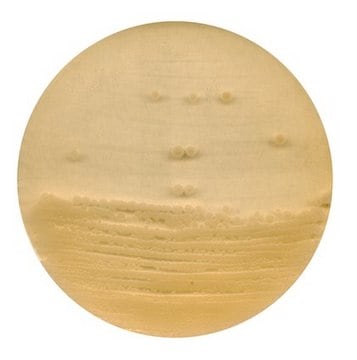GF63220014
Tungsten
wire reel, 10m, diameter 0.3mm, clean, 99.95%
Sinonimo/i:
Tungsten, W 005153, W
Autenticatiper visualizzare i prezzi riservati alla tua organizzazione & contrattuali
About This Item
Formula empirica (notazione di Hill):
W
Numero CAS:
Peso molecolare:
183.84
Numero MDL:
Codice UNSPSC:
12141747
ID PubChem:
NACRES:
NA.23
Prodotti consigliati
Saggio
99.95%
Forma fisica
wire
Produttore/marchio commerciale
Goodfellow 632-200-14
Resistività
4.9 μΩ-cm, 20°C
L × diam.
10 m × 0.3 mm
P. eboll.
5660 °C (lit.)
Punto di fusione
3410 °C (lit.)
Densità
19.3 g/mL at 25 °C (lit.)
Stringa SMILE
[W]
InChI
1S/W
WFKWXMTUELFFGS-UHFFFAOYSA-N
Categorie correlate
Descrizione generale
For updated SDS information please visit www.goodfellow.com.
Note legali
Product of Goodfellow
Certificati d'analisi (COA)
Cerca il Certificati d'analisi (COA) digitando il numero di lotto/batch corrispondente. I numeri di lotto o di batch sono stampati sull'etichetta dei prodotti dopo la parola ‘Lotto’ o ‘Batch’.
Possiedi già questo prodotto?
I documenti relativi ai prodotti acquistati recentemente sono disponibili nell’Archivio dei documenti.
Mehran Ahmadlou et al.
Nature communications, 6, 6773-6773 (2015-04-04)
The superior colliculus is a layered structure important for body- and gaze-orienting responses. Its superficial layer is, next to the lateral geniculate nucleus, the second major target of retinal ganglion axons and is retinotopically organized. Here we show that in
Mark L Witten et al.
Chemico-biological interactions, 196(3), 87-88 (2011-12-21)
There is emerging evidence that tungsten has toxic health effects. We summarize the recent tungsten toxicity research in this short review. Tungsten is widely used in many commercial and military applications because it has the second highest melting temperature of
Jan R Andreesen et al.
Annals of the New York Academy of Sciences, 1125, 215-229 (2007-12-22)
The history and changing function of tungsten as the heaviest element in biological systems is given. It starts from an inhibitory element/anion, especially for the iron molybdenum-cofactor (FeMoCo)-containing enzyme nitrogenase involved in dinitrogen fixation, as well as for the many
P Thongkumkoon et al.
Toxicology letters, 226(1), 90-97 (2014-02-08)
The toxicity of nanomaterials has been well known, but mechanisms involved have been little known. This study was aimed at looking at direct interaction between nanomaterials and naked DNA for some fundamental understanding. Two different types of nanomaterials, carbon nanotubes
Synthetic analogues and reaction systems relevant to the molybdenum and tungsten oxotransferases.
John H Enemark et al.
Chemical reviews, 104(2), 1175-1200 (2004-02-12)
Il team dei nostri ricercatori vanta grande esperienza in tutte le aree della ricerca quali Life Science, scienza dei materiali, sintesi chimica, cromatografia, discipline analitiche, ecc..
Contatta l'Assistenza Tecnica.




